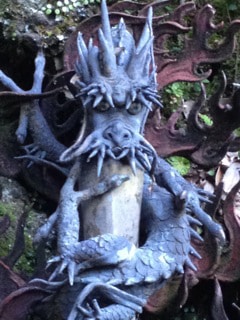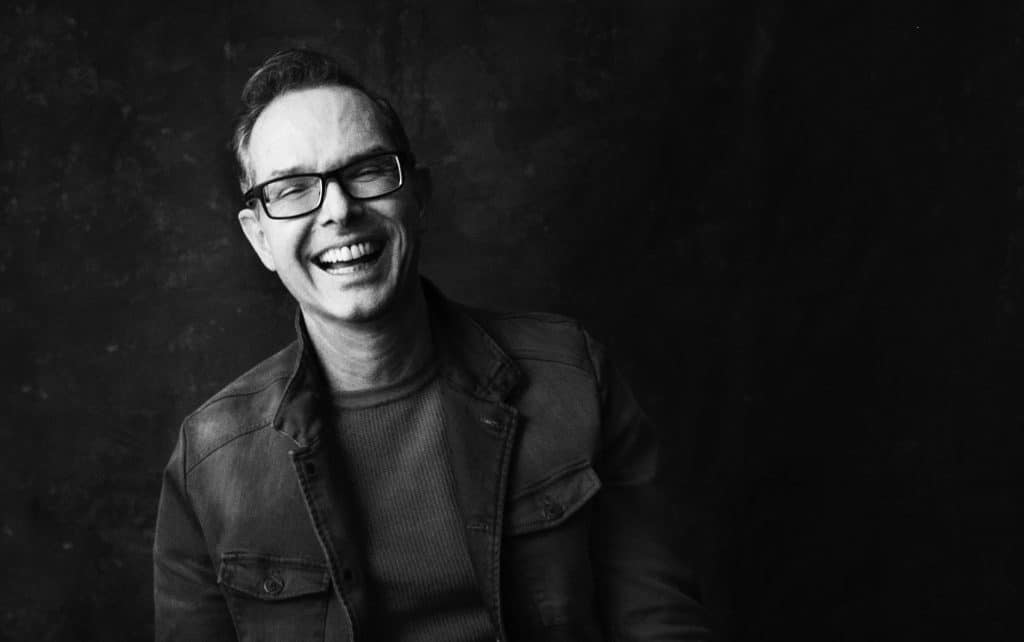
How my recent shugendo training has informed my understanding of the system of Reiki
As some of you might know I recently went to Japan to train with a Japanese Shingon priest, Takeda Hakusai Ajari, who was once a Tendai monk as a disciple of the great Sakai Dai Ajari, learning about Shinto, Shugendo, Tendai and Shingon. This training has brought me different insights into the system of Reiki and Mikao Usui.
The first thing Ajari said about the system was that for him Reiki means “our true self/true nature” and that therefore the system of Reiki is all about discovering our true selves.
While practicing these teachings throughout the week I became aware of certain similarities between the meditation practices and the meditations taught within the system of Reiki, like Hatsurei-ho and Joshin kokyu ho, for example. The Reiki meditations are clearly simplifications of more elaborate meditation practices within Tendai, Shingon, Shugendo and Shinto. Did Usui-san simplify these more elaborate teachings to make them more accessible to lay people? I also started to see the same things happening within the symbols and mantras of the system of Reiki. How similar tools are used within the more traditional teachings of Tendai, Shingon, Shugendo and Shinto. When the Ajari performed the Goma (Fire ritual) I became aware of the focus points of the head, heart and tanden/hara, these areas are traditionally also connected to the symbols and mantras taught within the system of Reiki. Through watching this ritual I saw and experienced deeper layers to this connection.
We also discussed the reiju/attunement/initiation and how traditionally this was seen as an initiation from mind to mind ( Jp. nyu ga ga nyu), but to be able to facilitate this we first need to purify our own minds as teachers, which might take years and years of practice. Therefore, to be able to perform a reiju from this viewpoint we need to have “a great mind”: a clear mind without anger or worry, and one that is compassionate. This is, of course, far easier said than done. Many modern teachers say that they perform the reiju/attunement/initiation from this perspective, yet they also claim that they are the only ones who have Reiki, and that after the student receives the reiju/attunement/initiation the student also has Reiki. This is not in line with the Tendai, Shingon, Shugendo and Shinto teachings in which it is understood that we all have Reiki already, we just haven’t realized it yet. To claim that others do not have Reiki until you perform a ritual on them is also statement without compassionate – in true compassion we are all the same, no one is without Reiki.
In many modern practices, the tools taught within the system of Reiki are externalized (you do “things” with them), while in all the traditional Japanese teachings they are internalized for contemplation.
Being back now for just over a week, I am slowly starting to integrate the teachings into my life and practices. I am beginning to see clearly how I
can improve our own classes, they way we work with Joshin Kokyu-ho, Hatsurei-ho, the symbols and the mantras, taking our students even deeper into the teachings of Mikao Usui.
I hope to write some more detailed articles on my insights so that everyone can benefit from this journey. Always keeping at the heart of it that the most important element within the system of Reiki is finding our true selves/Reiki.
PS: I’ve also found something that might have inspired Usui-san’s Reiki Precepts!
Read about Frans’ Japan JournaL
JOIN FRANS FOR A REIKI COURSE OR REIKI RETREAT
Based in Holland, Frans Stiene teaches in North America, Europe, UK, Australia and Asia.
Frans is also the author of Reiki Insights, it is the continuation of his previous book The Inner Heart of Reiki, taking your personal practice and understanding of the system of Reiki yet another step deeper.


Comments 20
Hi Frans
I look forward to reading more of your journey and teachings.
Love and Light to all
Dear Frans,
This is really exciting stuff, and somehow, not surprising at all!
What is within is reflected outward – so purification and discipline (self practice and The Precepts) are such great aids to this! I’m really excited – the journey continues to go deeper and farther than imagined!
Thank you for sharing all of this!
Kris
Thank you, Frans, for sharing your discoveries with all of us! I’m hoping that, once you’ve had more time to integrate and work with what you’ve learned, you’ll be inspired to write a book about your journey (in your abundant spare time…). What you say about compassion (and the lack thereof) among Reiki teachers is very true. If we can’t teach from a place of compassion, we’d be better off doing something else. Otherwise, it’s just another power trip.
Hi Elly,
So true. Many old masters warn us that if there is no true compassion involved in a spiritual practice then the rituals we do are empty rituals, they are just that, a physical ritual. But if there is true compassion in a ritual then it changes the whole concept.
I love this quote:
“We say that the giver, receiver, and the gift itself are empty and peaceful. This is our standard for dana paramita [the very best way of giving] the giver is empty of self, the receiver is empty of self, and the thing given is empty of self. Simply selfless. Without this wisdom, giving is an ego trip. How can we cross over to a life where benefiting others is more important than our own self-interests? Unsurpassable giving is realizing that there is no one who possesses and that there is nothing to possess. When we realize this, giving and receiving is done without any thought of loss or gain.” Sensei Egyoku
Hi All,
The above quote is taken from a talk by Roshi Wendy Egyoku Nakao.
Here is the link to the whole talk:
DANA PARAMITA: The Practice of Unsurpassable Giving
by Roshi Wendy Egyoku Nakao
http://www.zencenter.com/Teachers/DharmaTalks/Roshi Egyoku Nakao – Dana Paramita.php
Hi Frans, First of all: great dragon picture!! Second: thanks for sharing some of your insights with us, it is so helpful for all of us, to improve our practice, our way of teaching and all! I feel so blessed to be your student:)
Hi Kathleen,
The dragon picture was taken in this amazing valley with many dragon statues and Fudo statues plus a wonderful waterfall. What a place, would definitely want to visit this valley again and spend more time there.
Since there’s no way for me to get a direct training from IHR (until you come to Poland, Frans), I guess I’m left with looking forward for your new book that will describe your fresh understanding in details :).
Hi Nathan,
I will be teaching a one day class in Hamburg this year and a Shinpiden Reiki level III course in the UK plus a 4 day Reiki Retreat in the UK as well. Maybe you can make it to one of them. In the mean time keep up your good practice.
Maybe I will make it next year :).
Would be nice to meet you Nathan.
I am thrilled to learn of your adventures in Japan. It reminds me of Dzogchen teachings a different type of Buddhist practice with a different perspective. If all beings have the Buddha nature would it follow that all beings have Reiki. Discovering ones primordial nature is it the same for a dog the Zen Buddhists ask. According to the practice of Buddhism in India where it started where is the vehicle of Tendai Buddhsim Mahayanna Buddhism in their system of nine vehicles?
Hi Frans!
Very interesting article. Like the others I look forward to hearing more of your insights. I know that giving and getting Reiki treatments can be so powerful, but the more I have devoted myself to self practice, the more I realize the nature of the practice. Is there a place I can learn about the meditations you mentioned?
I always suspected a deep link between Shingon/Tendai Buddhism and Usui’s teachings (even though some of the claims out there are contradictory), that, in part, it was his way of making the wisdom and power of these esoteric sects accessible to the layperson, populizing them, in a way. Did you get a sense of how the monks perceived this transmission of their “secrets?” Thanks for the great article!
Nikki
My heartfelt gratitude to you, Frans, for continuing to live the message you teach. Committing to go deeper in your practice and journey, getting to the essence of these simple and profound teachings of Usui-san, connecting the dots between the more complex teachings that pre-date Usui-san and his own likely simplifications of the same, refining your own teaching and sharing from that space of continuously improving and deepening understanding—nothing demonstrates being true to your way and your being as what you show practically through your approach. Very inspiring! Thank you so much! ~Sundar
Hi Nikki,
I think the monks are okay with it, they see that if it is taught in the right way, it is a great vehicle to discover more of our true self.
They also see the system of Reiki as an expedient means to go into the deeper “secret” teachings.
Hi Francine,
The priest I worked with sees that Reiki is Buddha nature, it is one and the same thing, just a different word to express the same thing.
I have seen similar teachings and practices as Dzogchen within their teachings.
Thank you Frans for sharing this valuable information and for what you do to better the standard of practice.
I like the part about the meaning of Reik:“our true self/true nature”. 🙂
Hi Heine,
Rei can be translated as Spiritual, Divine, Mysterious and Ki as energy or essence, so what is this Divine Essence, well this is our True Self. And our True Self is nothing different then the essence of the universe.
It is an amazing journey isn’t it.
Love
Frans
Hi All,
You might also be interested in reading this article:
http://www.ihreiki.com/blog/article/shugendo_and_the_system_of_reiki/
Love
Frans
Thank you Frans! What a wonderful adventure. I look forward to your next writings. I too love the quote on Dana Paramita. My gratitude for helping us cultivate Right View as we relate to self and the other,and the relationship that ensues…each emptiness in essence.
And Sensei’s quote brings to mind for me this one:
“We live in illusion and the appearance of things. There is a reality. We are that reality. When you understand this, you see that you are nothing, and being nothing, you are everything. That is all.” Kalu Rinpoche